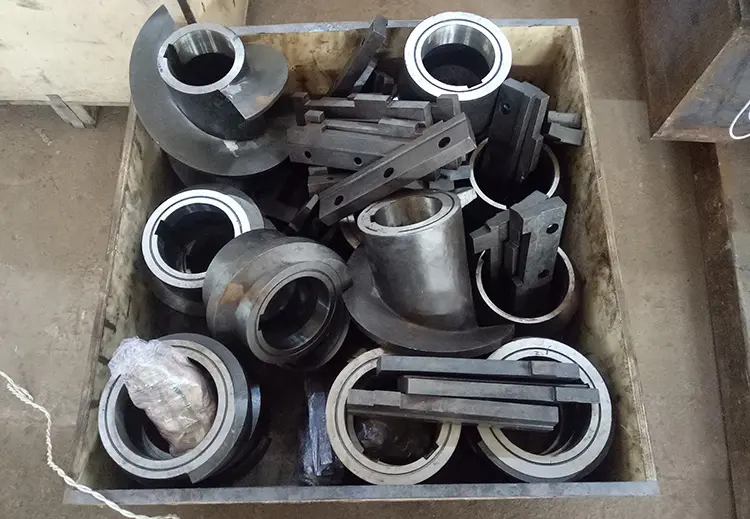நவ் . 28, 2024 05:55 Back to list
Grain and Oil Refining Facility for Enhanced Production Efficiency and Quality Improvement
The Importance of Grain Oil Refining Units in Modern Industry
Grain oil refining units play a crucial role in the food processing industry, enabling the transformation of raw vegetable oils into refined products suitable for consumption and cooking. The process of refining grain oils involves several steps, including degumming, neutralization, bleaching, and deodorization, each aimed at improving the oil's quality, taste, and shelf life. This article delves into the significance of grain oil refining units, their operational processes, and the challenges they face in today’s market.
The Refining Process
The refining of grain oils is a multi-step process that ensures the removal of impurities and undesirable substances from crude oils. The initial stage, degumming, involves the removal of phospholipids and other hydrophilic impurities through hydration. This is followed by neutralization, where free fatty acids are eliminated, usually using an alkaline solution. This step is critical as it enhances the oil’s flavor and extends its shelf life.
Next, the oil undergoes bleaching, where bleaching earth or activated carbon is used to remove pigments and any remaining impurities. This step significantly improves the oil's appearance, making it more appealing to consumers. Lastly, deodorization is performed through steam distillation, effectively removing volatile compounds that can influence the oil's aroma and taste. The result is a high-quality, light-colored, and odorless refined grain oil that is ready for various culinary applications.
Economic and Nutritional Significance
The grain oil refining industry is not only vital for food quality but also has significant economic implications. Refined oils are used in cooking, baking, frying, and as ingredients in processed foods, making them staples in households and restaurants. The demand for healthy cooking oils has risen, prompting manufacturers to innovate and produce oils with enhanced nutritional profiles. This shift has led to the development of oils rich in omega-3 and omega-6 fatty acids, appealing to health-conscious consumers.
grain oil refining unit

Moreover, the grain oil refining sector contributes to job creation, providing employment opportunities across various levels, from raw material sourcing to production and distribution. As the global population continues to grow, the need for efficient and sustainable oil refining processes becomes paramount, necessitating ongoing investment in technology and infrastructure.
Environmental Considerations
While the grain oil refining industry brings multiple benefits, it also faces significant environmental challenges. The refining process generates waste products, including spent bleaching earth and wastewater, which can pose environmental risks if not managed properly. Companies are increasingly being held accountable for their ecological footprint, prompting a shift towards more sustainable practices.
Investments in waste treatment technologies and the adoption of circular economy principles are becoming essential. For instance, many refining units are exploring ways to recycle waste products into valuable by-products or utilizing eco-friendly solvents in the refining process. This not only minimizes waste but also aligns with global sustainability goals aimed at reducing pollution and conserving resources.
Conclusion
Grain oil refining units are indispensable in ensuring the availability of high-quality cooking oils for consumers worldwide. Their role in food safety, nutrition, and economic development cannot be overstated. However, with the growing awareness of environmental issues, the industry must adapt and innovate to minimize its ecological impact. By embracing sustainable practices and leveraging technology, grain oil refining units can continue to thrive while contributing positively to both society and the environment. As the industry evolves, it will be essential to balance the demand for refined oils with the need for responsible and sustainable operations, ensuring a bright future for grain oil refining in a rapidly changing world.
-
HP290 First Press Oil Expeller Machinery: Efficient Oil Extraction
NewsAug.02,2025
-
Top Food Oil Refined Unit Companies w/ GPT-4 Turbo Tech
NewsAug.01,2025
-
Premium Black Seed Oil Expeller - High Efficiency Cold Press Oil Machine
NewsJul.31,2025
-
Oil Processing Equipment - High-Efficiency Flaking Machine
NewsJul.25,2025
-
High-Efficiency Peanut Oil Refined Machine for Quality Oil Production Leading Exporters & Companies
NewsJul.08,2025
-
High Efficiency Sunflower Seed Oil Press – Leading Cooking Oil Press Machine Factories & Suppliers
NewsJul.08,2025
